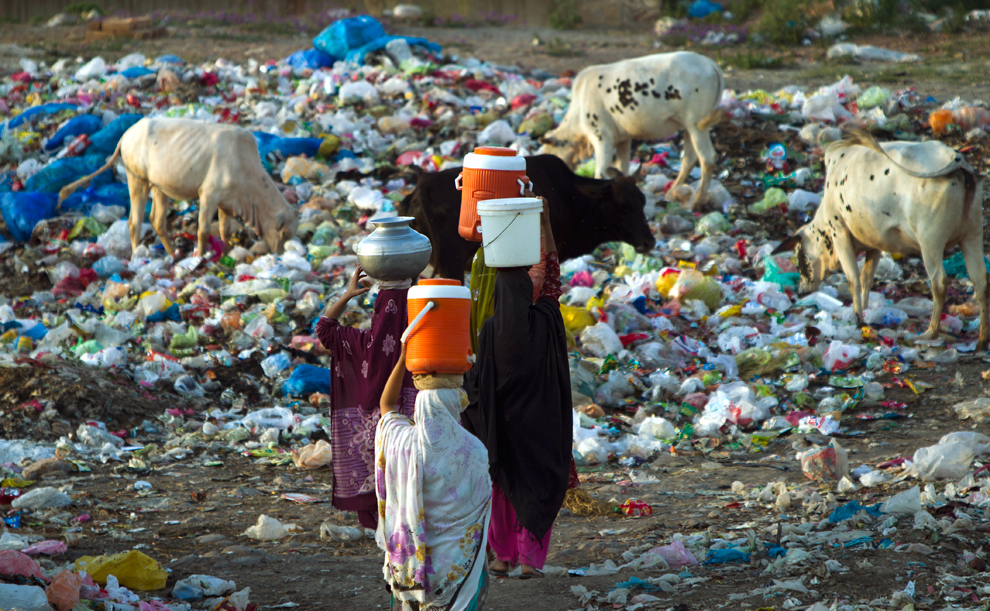The natural disasters occur in Afghanistan due to climate change
Afghanistan is one of the most vulnerable nations in the world to the effects of climate change and is one of the least prepared to deal with the repercussions, although contributing little to overall global emissions. As the Afghanistan has experienced intense and worsening extreme weather and natural disasters, including droughts, storms, floods, landslides, avalanches, and earthquakes, brought Afghanistan particularly in the list of vulnerable countries.

Due to climate change and years of environmental deterioration, these disasters are happening more frequently and with greater intensity. Natural catastrophes brought on by climate change now afflict thousands of people across each year.
Communities are significantly threatened by environmental challenges because they have a limited ability to adjust to the changing environment and frequently use methods that are no longer appropriate or efficient. The majority of families won’t have money to fall back on, and there is no social safety net to help them survive in times of distress. Every time they experience a calamity, their capacity to deal declines, and any advancement they had achieved is lost.
Traditional natural resource management techniques have been weakened by years of fighting, which has also taken the former government’s attention and resources away from vital programs for coping with climate change. Additionally, communities lack the mechanisms necessary to detect impending disasters, alert residents, and assist them in making preparations. This makes it much more probable that lives, property, livelihoods, and infrastructure will be lost.
Small climatic changes have tremendous effects on growth rates and harvests, affecting the survival of 80 percent of the world’s population and increasing the likelihood of food shortages. Last years, conflict and displacement forced hundreds of thousands of people from their homes and animals, risking immediate harvests and output and weakening long-term resilience. Droughts and floods drive people to flee their homes, ruin ecosystems, and spark conflict over depleted natural resources.
ESAAR is committed to reduce climate change process in Afghanistan
Afghanistan’s population urgently needs assistance with agricultural development and climate adaptation now more than ever. For more than 40 years, Afghan people have shown extraordinary endurance as they have endured the aggravating effects of violence and calamity. Rural populations in Afghanistan, however, require assistance if they are to maintain their way of life, adjust to the changing environment, and increase food production in the face of the current crisis, in addition to natural catastrophes, climate change, and food shortages.
Providing Health Care facilities to unreachable areas, as well as survive the community in protection, general protection, child protection and environmental protection issues in Afghanistan, Healthcare becomes a cornerstone for establishing strong, self-sufficient communities.
The ESAAR envisions a healthcare system that is accessible, sustainable, and responsive to the needs of all people, particularly those in vulnerable or neglected communities. We focus on providing communities with the knowledge, resources, and tools they need to preserve their health and well-being. We hope to empower people to take control of their health by encouraging preventative healthcare measures, improving access to important medical services, and assuring a strong network of health experts.
In addition to lowering reliance on outside assistance, this promotes resilience and self-care, guaranteeing that everyone can lead a healthy, fulfilling life in their communities. Protecting the environment is just as important as encouraging independence. Individual well-being is directly impacted by a healthy environment, and long-term self-sufficiency depends on sustainable activities.
ESAAR raises awareness of environmental issues and allows local people to participate in conservation activities, minimize waste, and implement sustainable farming methods. By integrating protecting the natural world with health efforts, we ensure that people may thrive in a clean, safe environment that promotes both physical and mental health. This dual approach not only helps to protect natural resources, but it also teaches people the value of self-sufficiency, laying the groundwork for a future in which communities are self-sufficient not just in terms of health, but also in their connection to the environment.



